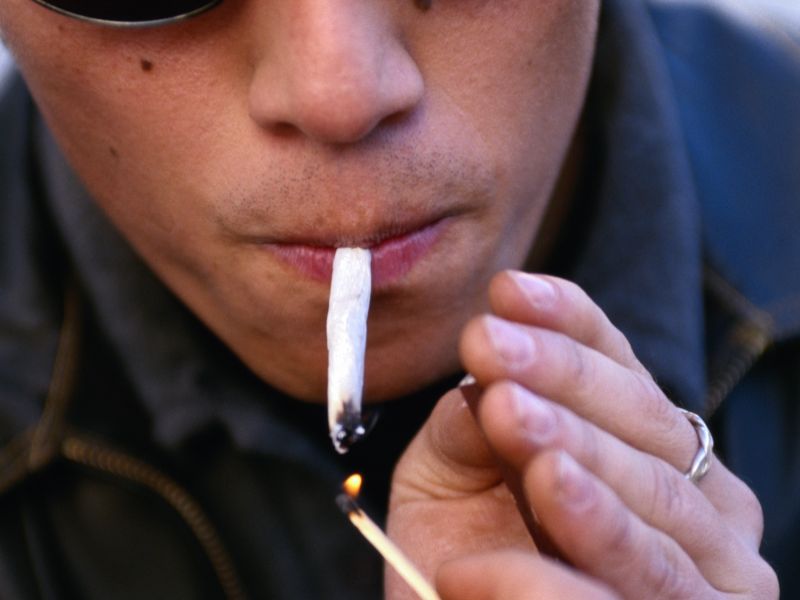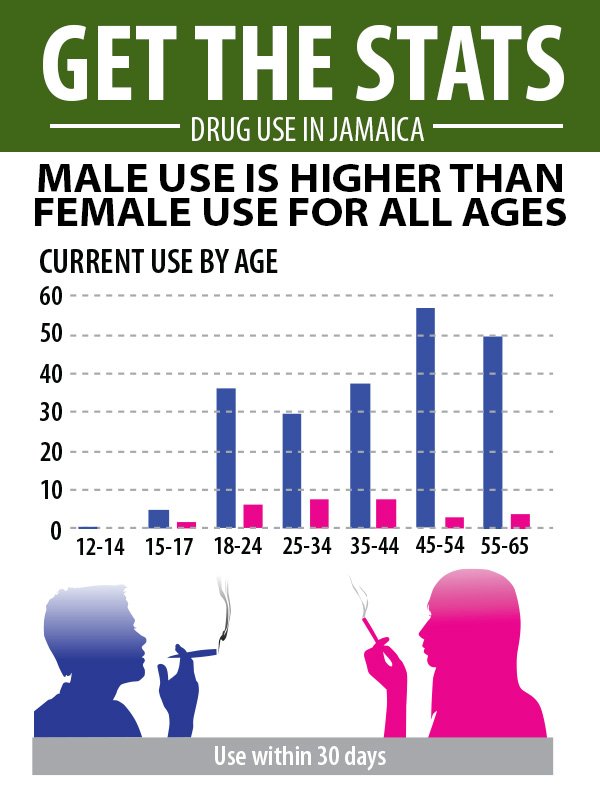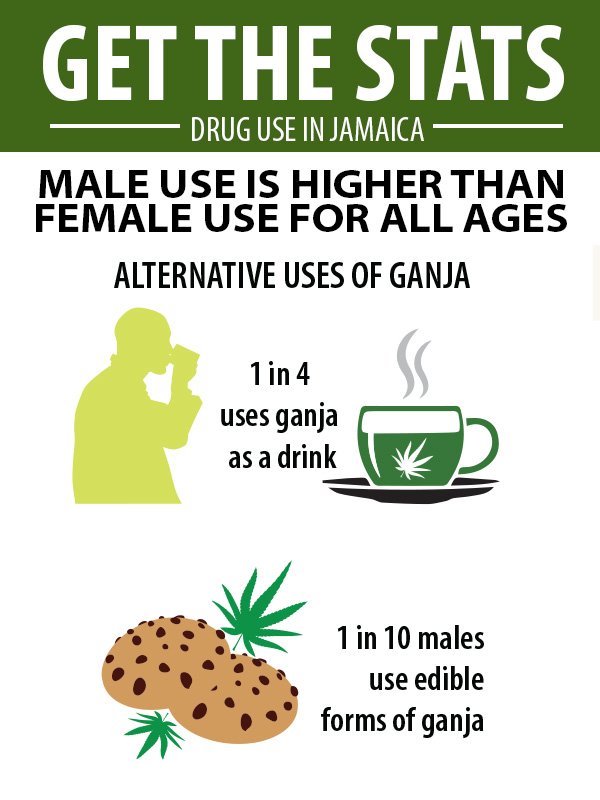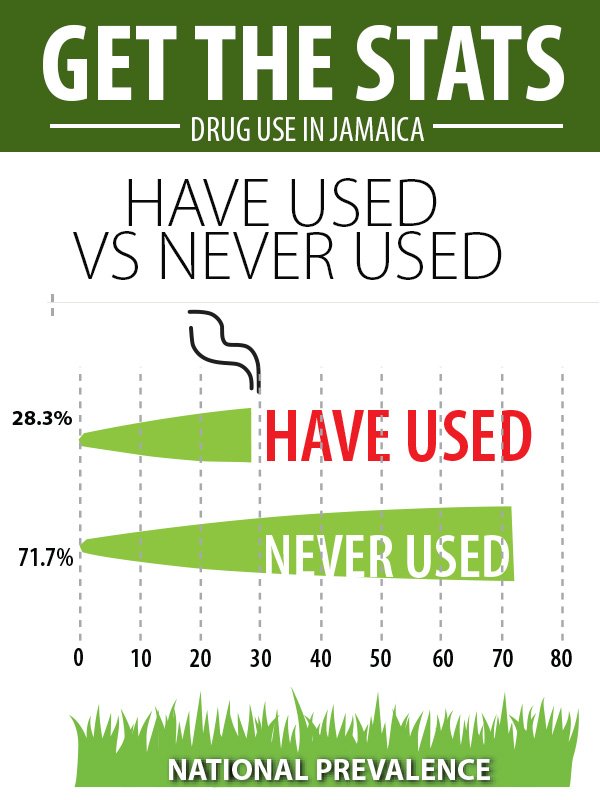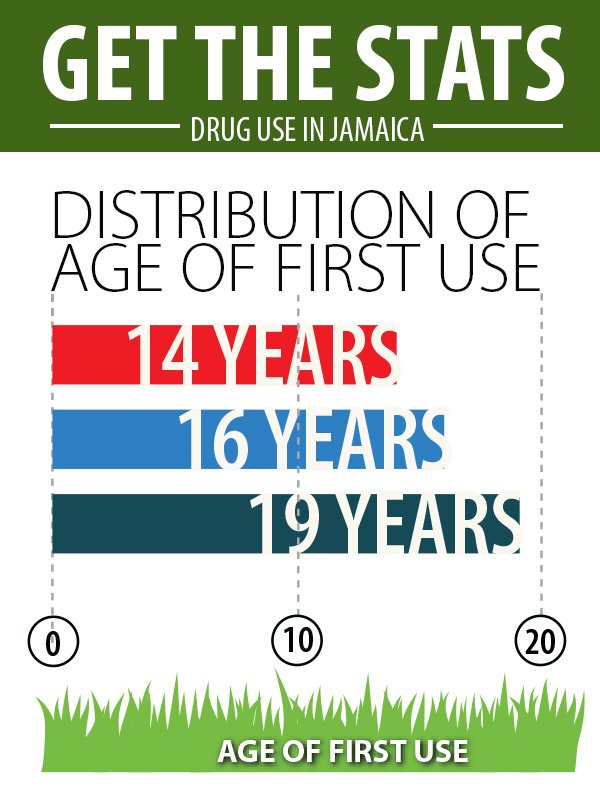 Istock
Istock
In a sun-filled room overlooking a smattering of palm trees,
power lines, and cement-and-terracotta bungalows, a 73-year-old
recovering alcoholic rolls a joint.
Frank, whose name has been changed for this story, doesn't
particularly like the feeling he gets from smoking cannabis, but
he doesn't hate it either. And he admits it helps him sleep.
High Sobriety, the southern California rehab center where Frank
is staying, incorporates cannabis into its treatment regimen for
people with drug and alcohol addiction. Frank hasn't touched
scotch, his former drink of choice — or any other alcoholic
beverage, for that matter — in 30 days.
A month ago, he was living alone and drinking around the clock,
despite repeated warnings from his physicians about negative
interactions between alcohol and the medications he takes for
high blood pressure and other age-related health issues. During a
bender over the holidays, Frank knocked over the carriage holding
his daughter's 10-month old baby. Concerned, his family took him
to Alcoholics Anonymous. Nothing stuck, and Frank's health
continued to decline.
So one day last year, his daughter called up Joe Schrank, High
Sobriety's founder, and asked if he could help.
 The High Sobriety common
room.
High Sobriety for Business
Insider
The High Sobriety common
room.
High Sobriety for Business
Insider
The idea behind High Sobriety is simple: Help addicts stop
abusing the substances that are causing them the most harm, and
use cannabis as a tool to do so.
"Our retention rates are so much better with being able to give
them something," Schrank, a trained social worker who has spent
the last 15 years working with addicts, tells Business Insider.
"The truth is a lot of these people are deep deep deep into the
weeds with drug and alcohol use and to think there's a light
switch and they can just turn it off...I mean you're dealing with
a different person when you talk about cessation of drug use."
Schrank's unconventional approach has put him at odds with many
people in the recovery community. But his strategy is part of a
new and growing movement that aims to treat addiction like any
other mental illness — with science. The approaches coming out of
this movement share a common thread: the belief that we should
stop treating addiction as a moral issue and start treating it as
a medical one.
Reducing harm
Schrank disapproves of the way AA and other similar programs
portray drinking and using drugs as moral problems. That approach
is out of touch with science, he says.
"I never think of drug use as any kind of moral thing. Actually,
I like drug use, although it didn't really work out for me,"
Schrank says.
Maia Szalavitz, a neuroscience journalist and the author of
"Unbroken Brain: A Revolutionary New Way of Understanding
Addiction," agrees.
"This stuff that emphasizes this morality, we don't have anything
else like that in medicine," Szalavitz, a former heroin addict
and AA member, says. "And the 12-step thing talking about
'defects
of character', that's not exactly helpful for someone who
already has a lot of self-hatred."
 A High Sobriety
bedroom.
High Sobriety for Business
Insider
A High Sobriety
bedroom.
High Sobriety for Business
Insider
Like Schrank, Szalavitz believes that for many addicts, giving up
their drug of choice is necessary for recovery, but giving up all
drugs may not be.
"This whole idea that total abstinence is the only route to
recovery has been incredibly damaging to the addiction field,"
she says.
Instead, a better approach might be to identify addicts' problem
drug — which Szalavitz describes as "that one
partner that you long for but if you get them you'll go crazy" —
and remove that substance.
This idea falls in line with decades of research in a field
called harm reduction, which accepts that drug use is a part of
daily life. Instead of trying to get people to give drugs up
altogether, it aims to
improve people's safety by reducing the negative consequences
that can be linked with using drugs.
This, Szalavitz
believes, could save the lives of the many people who have
struggled with AA's hardline approach.
"Addiction is compulsive behavior despite negative consequences.
If you're using a substance responsibly and not having negative
consequences, why should anyone care?," she says.
Research seems to suggest that partial abstinence may help
some people who've struggled with substances like alcohol.
Keith
Humphreys, the section director for mental health policy at
Stanford's department of psychiatry, published a paper in a
2003 that reviewed an approach called "Moderation
Management." He concluded that making the method
an option for people with drinking problems "seems on
balance a benefit to public health."
'To say there's only one option is wrong'
Six years ago, Schrank's friend Gregory Giraldo was found
unconscious in a New Jersey hotel room after overdosing on
cocaine and Valium. He passed away shortly after.
Schrank, who's now 48, says that if he could see Greg today and
offer him cannabis instead of the drugs he died taking, there'd
be no question about it. "I'd say, 'Smoke up there, Gregory, go
ahead.'"
Giraldo, a comedian, had been to rehab and tried the
abstinence-only route several times. But the 12 steps didn't save
him. Schrank thinks his new program might have.
High Sobriety founder Joe
Schrank.
High Sobriety for Business
Insider
"He was a brilliant dude," Schrank says. "Maybe he wouldn't have
been as functional as an abstinent-only person, I don't know. But
when I hear people tell others that [abstinence-only] is 100% of
the pie — they're wrong."
Schrank has also gone through AA. He got sober that way 20 years
ago and hasn't touched a drink or a drug — even cannabis — since.
(Ironically, he doesn't like the smell of pot.) While he says AA
helped him "immensely in a lot of ways," Schrank takes issue with
the idea that addicts are only given two choices: complete
abstinence or nothing.
"To say there's only one option and to present people with only
one option is wrong," Schrank says. "It's like saying I have a
moral objection to insulin so I'm just not going to take it. It's
malpractice if you ask me."
Schrank and other critics of AA's methodology cite its dismal
success rates as one of many reasons that new approaches are
necessary.
"About one of every 15 people who enter these programs is able to
become and stay sober," Dr. Lance Dodes, a retired professor of
psychiatry at Harvard Medical School wrote in his well-known 2014
book,
"The Sober Truth: Debunking the Bad Science Behind 12-Step
Programs and the Rehab Industry." A large 2006 review of 8
trials involving more than 3,400 people also
concluded that
"no experimental studies unequivocally demonstrated the
effectiveness of AA ... for reducing alcohol dependence or
problems."
Abstinence-only approaches are simply untenable for people
like Frank, Schrank says. "The truth is he's 73 years old, he's
alone, and the idea that we're gonna make him go to AA and stop
drinking, it's fantasy — that's not compassion."
Still, there is some evidence that AA can help some people. A
study of more than 400 people
found
that "some of the association between treatment and long-term
alcohol-related outcomes appears to be due to participation in
AA." A 29-year old recovering alcoholic who's been
sober for eight years put it to me this way, "If it wasn't
for the rooms [of AA] I'd be lying in a gutter somewhere. That's
my reality."
Does cannabis help curb addiction?
There simply aren't many studies on whether cannabis works for
those struggling with addictions.
The research that exists suggests that cannabis
may be a
helpful tool in
reducing opioid use in people who use them for longterm pain
relief. It also
could help
reduce the physical and psychological symptoms of withdrawal.
And it
might help some addicts stop using
other substances
like nicotine, although as a large
report published in
January by the National Academy of Sciences noted that "only
one randomized trial assessing the role of cannabis in reducing
the use of addictive substances" exists.
 iStock
iStock
In addition to being few and far between, each of these studies
suffered from at least one research error. In some cases, the
sample was too small to extrapolate; in other cases the data was
based only on surveys, which can't provide scientific answers. In
other cases, people in the study knew which drug they were
taking, which might have contaminated the findings.
Clearly, more research is needed.
"I think ideally you'd study it before you just go and do it,"
Szalavitz said. "I think it's an intriguing idea that we need
more research on."
And of course, many researchers simply say the idea of using
cannabis to treat addiction is absurd.
"Marijuana has exactly no role in the treatment of any mental
illness, especially substance-use disorders," Thomas McLellan,
who founded the nonprofit Treatment Research Institute
and served briefly as deputy drug czar under the Obama
administration,
told The Guardian.
All of these issues put Schrank in a tough spot.
"It's not the easiest place. AA people hate me, rehab people hate
me," he says. "I'm OK with that."








